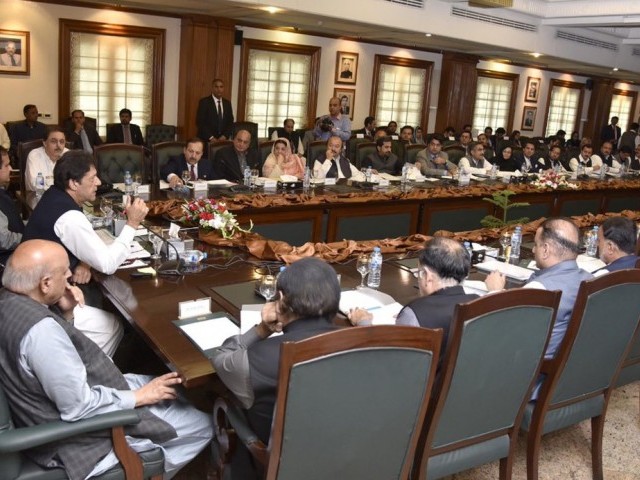
Women are severely underrepresented in the federal cabinet, and even more so in the provincial cabinets. In the federal cabinet, there are only three female ministers out of a total of 23 ministers and advisers. In Punjab, out of 35 ministers only two are women, and in K-P there are no female ministers. Even if we are to accept that appointing female ministers from a limited pool of members of national and provincial assemblies is challenging, the argument doesn’t hold true for the appointment of advisers and/or appointments to tasks forces, advisory councils or committees which are at the discretion of the PM.
A review of the composition of the Economic Advisory Council, the IT and telecommunications task force, the national task force on education, and the civil service reforms and austerity committees further highlights the lack of female representation in policy advisory roles. There is only one female member of the Economic Advisory Council out of a total of 16, one female member in the IT and telecommunications task force, two women each in the austerity and civil service reform committees and the national task force on education. And of these eight women, one name appears in two committees. Across each committee studied, on average, only nine per cent of members in each committee were female. There are other patterns that appear in the composition of these committees and task forces such as the inclusion of a high number of retired bureaucrats and the inclusion of the usual faces who are considered veterans of their respective sectors.
Given low levels of representation of women in such positions, and in parliament at large, it is not surprising that Pakistan ranks abysmally low in the Women, Peace and Security Index rankings which compares outcomes for men in women within countries across a wide range of variables, including labour force participation, representation in parliament and educational attainment.
The purpose of pointing this out is not to draw comparisons between this government and others, which may have been equally exclusive in their approach. The intention is to highlight that a lot more can be done to ensure that across all levels, the approach to policymaking is more inclusive.
For a political party that promises to deliver on a Naya Pakistan, it is essential that new voices are heard and new ideas are brought to the table. No one is saying that appointments in tasks forces, advisory councils and the like should not be based on merit, or that the best candidates for the position should be overlooked to make space for women. Simply put, the PTI government can do a better job at casting a wider net (for both men and women), and it shouldn’t take the saying ‘the best man for the job’ too literally.
Published in The Express Tribune, December 1st, 2018.
Like Opinion & Editorial on Facebook, follow @ETOpEd on Twitter to receive all updates on all our daily pieces.












COMMENTS
Comments are moderated and generally will be posted if they are on-topic and not abusive.
For more information, please see our Comments FAQ